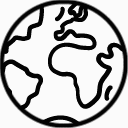
How can we build the capacity of youths to be able to handle the challenges of sustainable development? Here you can read about some of WWF Sweden’s initiatives to support schools in their work with Learning for sustainable development.
Education for Sustainable Development (ESD) is one of the targets under Sustainable Development Goal 4, Quality Education (SDG 4). Target 4.7 states: “By 2030, ensure that all learners acquire the knowledge and skills needed to promote sustainable development, including, among others, through education for sustainable development and sustainable lifestyles, human rights, gender equality, promotion of a culture of peace and nonviolence, global citizenship and appreciation of cultural diversity and of culture’s contribution to sustainable development.” This means that all education shall be designed to strengthen its contribution to sustainable development for all.
Swedish schools have a clear mission to work with sustainable development and ESD. This is declared in both preschool, compulsory school, and upper secondary school curricula. It states, among other things that: “The school is responsible for ensuring that each pupil on completing compulsory school /…/ has obtained knowledge about and an understanding of the importance of the individual’s own lifestyle and its impact on health, the environment and society” (p 12) Curriculum for the compulsory school, preschool class and school-age educare
Even if ESD is included in the Swedish school system’s governing documents, this does not mean that everyone who works with education has knowledge or skills of how to get ESD to permeate all teaching and learning. WWF Sweden works to support municipalities, principals and teachers to find ways to implement ESD and Whole School Approach in their daily work and in their work with follow-up and evaluation. We do this by e.g. publishing teacher guides in a number of areas, networking with teachers and principals and holding lectures and workshops about ESD.
Key concepts in our work with ESD:
- Whole School Approach
- Action competence and agency
- Interdisciplinary work
- Authentic learning
- Democratic working methods
- Student participation

Influence the future – Our City 2030
Influence the future – Our city 2030 is a way of working to develop students’ action competence. The working method is interdisciplinary and aims to give students action competence in the transition to a sustainable society.

Eat4Change
The Eat4Change project aims to contribute to a shift toward more sustainable diets and production practices, particularly in the livestock sector, supporting implementation of SDGs and climate change treaties and contributing to positive economic, social, and environmental impacts in Europe and developing countries. By working together with youth, the project aims for real change on an individual and institutional level – to achieve real impact for people and the planet.

MOOC
WWF Sweden is currently in the process to develop a Massive Open Online Course (MOOC) for principals and teachers with the purpose to support schools to implement education for sustainable development (ESD) in all school activities. WWF UK has already developed a MOOC designed for primary and secondary teachers and all those who want to develop a whole school approach to education for sustainability, and thus play a vital role in steering society towards a sustainable future.
Education for a sustainable planet – Microsoft Educator Center

Earth Hour
Started by WWF and partners as a symbolic lights-out event in Sydney in 2007, Earth Hour is now one of the world’s largest grassroots movements for the environment. Held every year on the last Saturday of March, Earth Hour engages millions of people in more than 190 countries and territories, switching off their lights to show support for our planet.
But Earth Hour goes far beyond the symbolic action of switching off – it has become a catalyst for positive environmental impact, driving major legislative changes by harnessing the power of the people and collective action.
Earth Hour is open-source and we welcome everyone, anyone, to take part and help amplify our mission to unite people to protect our planet.
Dela gärna:
Senast ändrad 17/02/22

